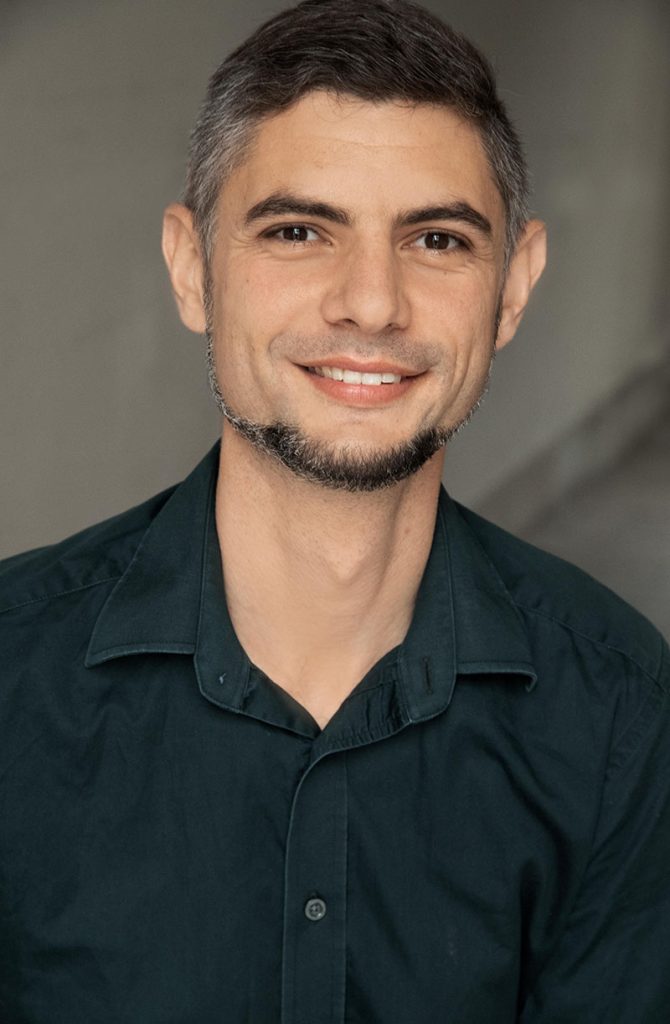In my research, I focus on communication and knowledge exchange among Muslim, Christian, and Jewish communities in the medieval Near East. Although many of these interactions took place over a millennium ago, they remain a rich source for understanding how interreligious discourse affects pluralistic societies. I employ both traditional and innovative digital tools to analyse this material, applying “digital humanities” approaches in my research, publications, and teaching.
Recently (in my Habilitation project), I have been using networks to identify the actors who bridged religious communities. Sometimes the networks reconstructed from medieval biographical entries and histories can be traced into documents that record everyday social life, such as those available from the Cairo Genizah. This helps me ground intellectual exchanges among Jews, Christians, and Muslims in concrete social interactions.
Besides scientific exchanges, those intellectual encounters include polemical and scriptural argumentation, which I’ve examined in some of my articles and in my forthcoming book, Polemic, Power, and Popular Opinion, about Muslim-Christian relations in 9th-century Iraq. At a time when Christians and Jews held positions of major social influence, the Arabic prose master Amr ibn Bahr al-Jahiz (ca. 776–868/869) argued for an ideology that would contribute to marginalising these communities. In doing so, he also revealed that many of his fellow Muslims were opposed to this marginalisation and that many of the legal, institutional, and social changes that would lead to Christians and Jews in the Near East becoming the tiny minorities they are today had only begun to be enacted in the 9th century.
In addition to interreligious relations, I take a particular interest in the Syriac-speaking communities of the Near East. Syriac is a dialect of Aramaic that was used widely across the Near and Middle East for about a millennium, from the 3rd to the 14th centuries, and lives on to the present among several diaspora groups as well as in some Near Eastern communities. I serve as co-editor of two online resources from Syriaca.org (The New Handbook of Syriac Literature and A Guide to Syriac Authors), and in some of my publications, I discuss the application of digital humanities to reference resources for Syriac.
nathan.gibson@lmu.de orcid.org/0000-0003-0786-8075
Areas of Interest
Jewish-Christian-Muslim relations, Syriac communities, social encounters, network analysis, polemics and argumentation, digital humanities
Historical Periods of Interest
8th through 13th centuries CE
Positions
2022
Research Associate (Principal Investigator), subproject “Arabic Literary Personages as Jewish Documentary Subjects” in the BMBF Project “Jenseits von Konflikt und Koexistenz: Eine Verflechtungsgeschichte der jüdisch-arabischen Beziehungen”, Institute of Near and Middle Eastern Studies, Ludwig-Maximilians-Universität (LMU), Munich
2018 – 2021
Research Associate (Principal Investigator), BMBF Kleine Fächer project “Communities of Knowledge: Interreligious Networks of Scholars in Ibn Abi Usaybiʿa’s History of the Physicians” (usaybia.net), Institute of Near and Middle Eastern Studies, Ludwig-Maximilians-Universität (LMU), Munich
2017 – 2018
Senior Research Associate, DFG Project “Biblia Arabica”, Institute of Near and Middle Eastern Studies, Ludwig-Maximilians-Universität (LMU), Munich
2015 – 2017
Postdoctoral Scholar, National Endowment for the Humanities Project “Syriaca.org: The Syriac Reference Portal”, Vanderbilt University, Nashville, Tennessee, USA
2015 – 2017
Guest Researcher, Institute of Near and Middle Eastern Studies, Ludwig-Maximilians-Universität (LMU), Munich
Education
2021
Habilitand, History and Culture of the Near and Middle East, Institute of Near and Middle Eastern Studies, Ludwig-Maximilians-Universität (LMU), Munich
2015
PhD in Semitic and Egyptian Languages and Literatures (Arabic and Syriac), The Catholic University of America, Washington, DC, USA
2011
MA in Semitic and Egyptian Languages and Literatures (Arabic and Syriac), The Catholic University of America, Washington, DC, USA
2010
MA in Biblical History and Geography (Historical Geography), Jerusalem University College, Jerusalem, Israel
Awards and distinctions
2021
Postdoc Support Fund, Faculty for the Study of Cultures, Ludwig-Maximilians-Universität (LMU), Munich
2019
Teaching grant, “Multiplikatoren-Programm”, Ludwig-Maximilians-Universität (LMU), Munich (with Ronny Vollandt)
2018
Research grant, German Federal Ministry of Education (BMBF), “Kleine Fächer” program (Grant number 01UL1826X)
Functions
2021
Digital humanities adviser, ERC-Project “MAJLIS: The Transformation of Jewish Literature in Arabic in the Islamicate World”
2020
Founder and lead organiser, Historical Middle East Data Alliance
2020
Organiser, virtual forum “Jews, Christians, and Muslims as Colleagues and Collaborators in the Abbasid Near East,” October 20–December 11, 2020
2020
Organiser, workshop on digital data exchange in historical Near Eastern studies, June 29–30, 2020, Munich
2019
Organiser, international research workshop, “Communities, Clashes, and Cohabitations: Group Perceptions from North Africa to Central Asia”, June 28–29, 2019, Munich


